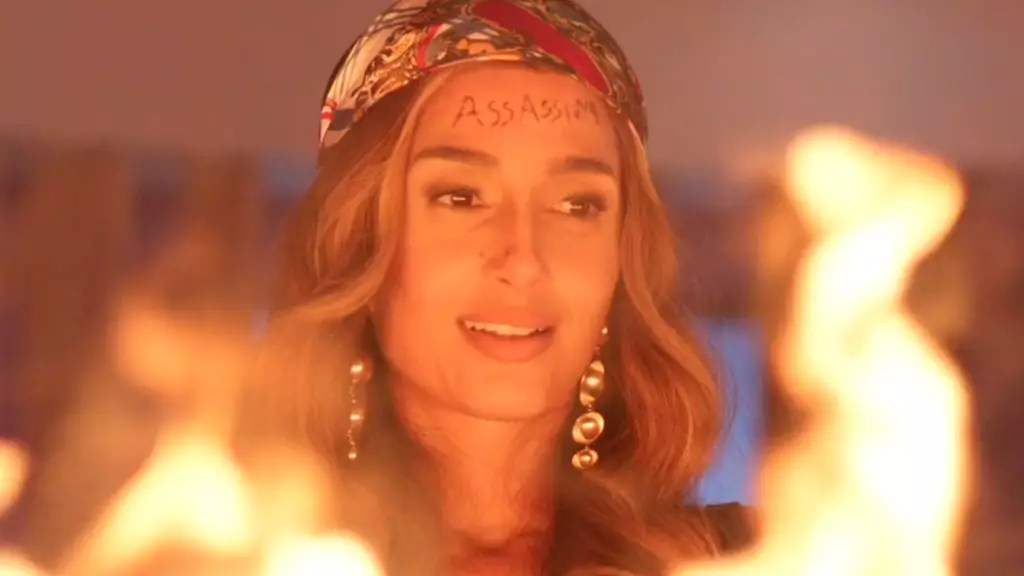In the world of telenovelas, the entanglement of love, revenge, and betrayal often culminates in moments that leave us breathless—as showcased in the gripping finale of ‘Beleza Fatal’ (Scars of Beauty). Set against a backdrop rife with drama and suspense, the series provided viewers not just entertainment but a reflection of humanity’s often flawed psyche. Max Brazil’s debut telenovela concluded by turning the focus on the profound implications of choices, culminating in the tragic fate of its main characters. As the last episode unfolded, the anticipated question—who killed Benjamin Argentino?—weaved through the narrative like a haunting refrain, drawing audiences to ponder not just who the killer is, but what drives someone to murder.
Characters as Mirrors: Lola and Sofia
At the core of ‘Beleza Fatal’ lie Lola, played poignantly by Camila Pitanga, and Sofia, portrayed by Camila Queiroz. Their dynamic encapsulates the essence of familial betrayal and the haunting specter of vengeance. The finale presents Lola painted as the prime suspect in Benjamin’s murder—a fate she vehemently denies. Yet, what lingers beneath the surface is not simply the question of guilt, but rather the emotional landscapes that guide these female characters. Lola’s emotional turmoil, reflected through her denial and devastation, suggests layers of complexity often overlooked in traditional narratives. Her confrontation with Sofia illustrates the spiraling consequences of their actions, which reveal the darker corners of human emotion.
Sofia’s journey toward revenge distorts her reality, leading to unexpected alienation. The weight of her choices becomes apparent as she faces betrayal not only from Lola but from her adoptive family. As she aligns herself with vengeance, she turns her back on her origins—ultimately trading authentic familial bonds for an illusory sense of justice. Here, the narrative challenges viewers to question the validity of revenge as a pathway to fulfillment, serving a deeper philosophical inquiry on the nature of identity and the human experience.
The Illusion of Victory
The climax of Sofia’s vengeful path lies in her final confession to Lola in the prison scene—a moment heavy with poetic irony. As she admits to murdering Benjamin and framing Lola, one reflects on whether revenge equates to victory. The exchange serves as a mirror to both characters’ souls, revealing that Sofia’s triumph is shrouded in melancholia. Lola’s retort, “You’re my prisoner,” resonates like a chilling echo, illustrating the unsettling notion that while characters may gain superficial victories, they often become ensnared in emotional prisons of their own making.
Sofia’s triumph is undercut by Lola’s unsettling presence in her mind, a testament to the idea that emotional scars can persist long after physical battles are fought. The statement, “I’ll get back up again,” from Lola encapsulates the enduring tenacity of the human spirit, even when faced with incarceration. Ultimately, this exchange forces us to confront uncomfortable truths: that victories may not yield the happiness we expect and that our past decisions cast long shadows over our present.
Impactful Symbolism and Themes
The series is laden with symbols that augment its rich narrative—the fire in LolaLand, for instance, serves as a haunting metaphor for destruction and rebirth. The physical conflagration mirrors the emotional crises that unfold throughout the series. The fire’s dual nature—representing both the burning desire for revenge and the incineration of their shared past—epitomizes the chaos that’s often inherent in human relationships.
Moreover, community and familial structures in ‘Beleza Fatal’ expose the fragility of interpersonal connections. Carol’s unexpected pregnancy signifies hope amidst despair, while Gisela’s inheritance raises questions about legacy and the burden of one’s familial ties. As secondary characters fulfill their narratives, they serve as foils to the primary protagonists, underlining the varied human responses to love and betrayal.
Enduring Questions Through Narrative Complexity
At its core, ‘Beleza Fatal’ challenges viewers to confront the intricate web of our choices, consequences, and relationships. Through Lola and Sofia, the series crafts a profound commentary on how the quest for vengeance can ultimately lead to self-destruction. It compels one to question not only the moral implications of revenge but the emotional cost of such pursuits. The legacy of ‘Beleza Fatal’ ultimately lies in its capacity to evoke thought-provoking conversations about the labyrinthine depths of the human condition—elements that resonate far beyond the telenovela format and into the very fabric of our lives.
